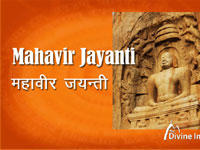

Guru is considered to be equal to the gods, for the equality between the guru and the deity, it has been said in many verses that as the need of devotion is for the deity, so is it for the guru. Rather, by the grace of the Sadguru, the realization of God is also possible. Nothing is possible in the absence of Guru's grace. There are many verses for Guru Purnima which are as follows:-
Gururbrahmā gururviṣṇuḥ gururdēvō mahēśvaraḥ |
Guru: Sākṣāt parabrahma tasmai śrī guravē namaḥ||
Meaning: Guru is Brahma, Guru is Vishnu, Guru is Shankar; Guru is the real Supreme Brahman; Salute to that master.
Sadguṇī dharmakartā sadaiva nītimāna asatō |
Tatvēbhyaḥ sarva śāstrānnā gururucyatē ||
Meaning: Those who know religion, who behave according to religion, pious, and who command the elements from all the scriptures are called gurus.
Nivartatyātyan'yajanaṁ pramadāḥ svataḥ niḥsvārthapaṇē kārya kēlē |
Guṇati tatvam hitamicuraṅgiṇam śivārthinām yāhā sa guru nigadyatē ||
Meaning : Those who prevent others from praising themselves, walk on a sinless path, give the idea of Tattva to one who desires welfare and well-being, is called a guru.
Nīcam śayyāsanaṁ cāsya sadā gurusannidhau |
Gurustu cakṣurviyē na yathēṣṭasanō bhavēt ||
Meaning: One should always sit near the Guru on a seat smaller than him. If the Guru is seen coming, then one should not sit arbitrarily.
Kimatrā bahunōktēna śāstrakōṭi śatēna ca |
Rarārā citta viśrāntīḥ gurukr̥pāṁ parama na ||
Meaning: What about saying a lot? What about crores of scriptures? Absolute peace of mind is rare to find without a Guru.
Prēraka: Sūcakān̄cā prēkṣaka hā prēkṣaka asatō |
Śikṣaka bōdhakaścaiva ṣaḍētē guravaḥ smr̥tā ||
Meaning: Those who give inspiration, give information, tell (the truth), show the (way), teach, and give realization - all these are equal to Guru.
Gukārastavandhakārastu rukāra avasthā ucyatē |
Andhakāra nirōdha gurutyabhidhiyētē ||
Meaning: 'Gu'car means darkness, and 'Ru'kar means fast; One who prevents darkness (by giving light of knowledge), he is called Guru.
Saraṁ caiva vacanaṁ ca bud'dhī mānānsi ca |
Niyamya prān̄jalīḥ tiṣṭēt vikāsānō gururmukham ||
Meaning: Keeping the body, speech, intellect, senses and mind under restraint, with folded hands one should look before the Guru.
vidvattvaṃ dakṣatā śīlaṃ saṃkrāntiranuśīlanam।
śikṣakasya guṇāḥ sapta sacetastvaṃ prasannatā॥
Meaning: Scholarship, cleverness, good conduct, teaching skills, repeated study, consciousness and kindness, these are the seven qualities of a teacher.
prerakaḥ sūcakaśvaiva vācako darśakastathā।
śikṣako bodhakaśvaiva ṣaḍete guravaḥ smṛtāḥ॥
Meaning : The one who inspires, one who informs, one who recites, one who guides, one who teaches, and the one who awakens, these are the six Gurus to remember.
vinayaphalaṃ śuśrūṣā guruśuśrūṣāphalaṃ śrutaṃ jñānam।
jñānasya phalaṃ viratiḥ viratiphalaṃ cāśravanirodhaḥ॥
Meaning : Modesty yields service, service to the Guru yields knowledge, knowledge yields detachment, and detachment yields salvation.